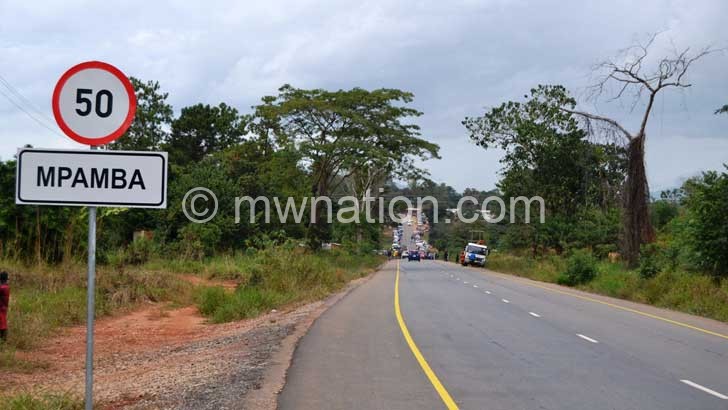Budget neglects Transport sector
Implementation of infrastrusture development in the transport sector is under threat unless Malawi increases funding to the sector, the Japanese International Cooperation Agency (Jica) has said.
In its transport sector position paper for Malawi, Jica observed that on average, the government allocates K30 billion (about $41 million) to the transport sector annually, most of which goes to the road sector.
Jica said this scenario threatens the implementation of the 20-year National Transport Master Plan which was launched in 2018.
Jica, which is one of the country’s main donors in the transport sector, said for the plan to be implemented successfully over the next 20 years, government needs to be contributing K100 billion (about $137 million) annually to the transport sector.

Reads in part the position paper: “Experience has shown that the Government of Malawi shows a lot of interest when it comes to implementing new infrastructure projects while it allocates very little resources for maintenance of the existing infrastructure.”
The National Transport Master Plan, estimated to cost $9.5 billion (about K7 trillion) between 2017 and 2037, has investments for rail sub-sector worth $2.3 billion (about K1.7 trillion) and inland water sub-sector worth $191 000 (about K140 billion).
However, in the 2019/20 fiscal year, Treasury allocated K69.6 billion for the initial implementation phase of the 20-year plan, which according to Ministry of Transport and Public Infrastructure spokesperson James Chakwera, is divided into five-year investment plans.
Of the allocation, K34.2 billion was meant for road projects, K21.2 billion for road maintenance, K6.6 billion for air and water transport projects and K7.5 billion for rail sub-sector projects.
Chakwera said in an interview that in the initial phase, the ministry is focusing on projects that already have full feasibility studies and had commitment for financing from both government and development partners.
The plan envisages solving transport infrastructure challenges which the private sector continues to cite as among drivers of high cost of doing business.
Road Transport Operators Association executive director Chrissy Flao Mwale said that over the years, government has failed to allocate enough money for road construction while the Roads Authority is overburdened with liabilities in unpaid contracts.
She said: “This has led to a lot of unfinished works or even abandoned works in road construction.
“At the current allocation, the National Transport Master Plan will not be fully implemented by 2037.”
Mwale said when the plan is fully implemented, there will be reduced business for road transport and increased operational costs because “the bad roads we have will take long to be worked on due to the level of allocation to the transport sector”.
The road sub-sector remains the main mode of transportation with 90 percent of goods and 70 percent of passengers using the road for local and international destinations.
The government has also placed transportation at the top of its development agenda in the Malawi Growth and Development Strategy (MGDS) III.





